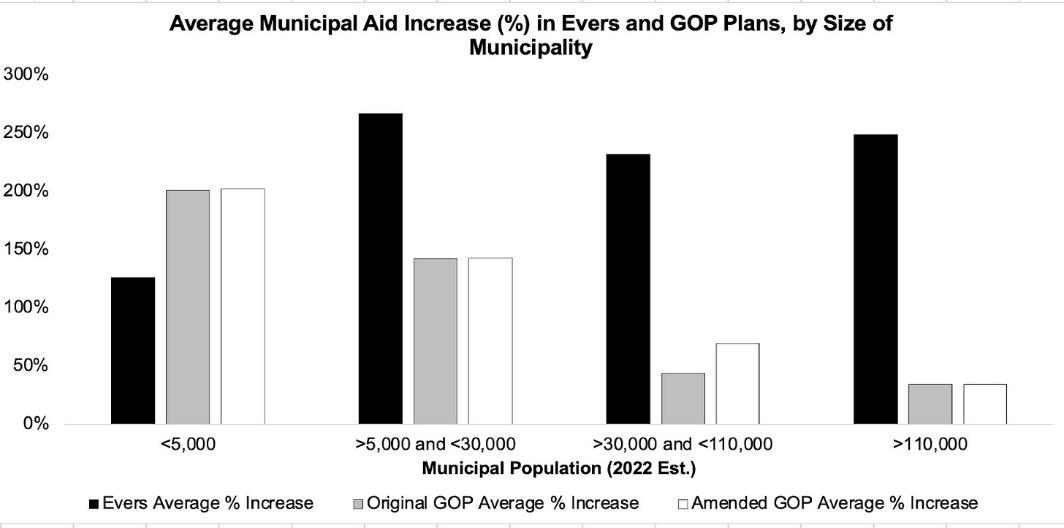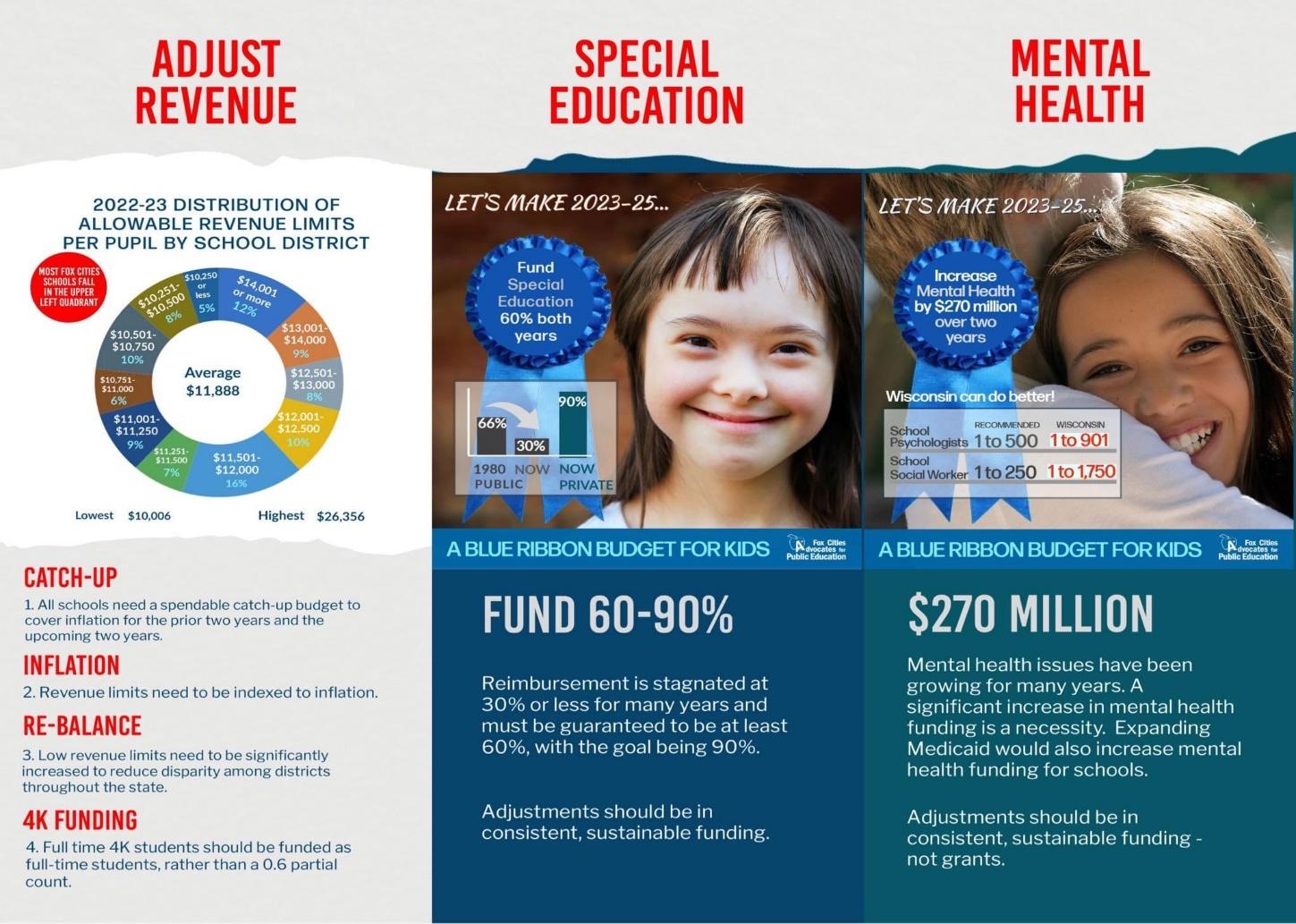UPDATE 5/23/23
Here’s the Amended Shared Revenue summary.
SB 301, the companion to AB 245 is currently having a public hearing in the Senate Committee on Shared Revenue, Elections and Consumer Protection.
5/22/23
Now more than ever it is important to contact our state legislators.
Make your voice heard. Click here to find contact information for your Wisconsin state senator and state assembly person and Governor Evers
Background:
The biennial Wisconsin budget debate is coming to a head. The Joint Finance Committee is finalizing their version of the state budget and will send it to the Assembly and Senate for debate and passage. Then it is up to the Governor to sign, veto, or partially veto.
Two of the many issues that need to be addressed in this budget are described below. With a $6.9 billion surplus we can do this and more.
SHARED REVENUE – “The government closest to the people serves the people best.” (Thomas Jefferson).
The state legislature has not increased state aid, called shared revenue, for over the last 30 years, while local costs rise yearly. With inflation, the result is an actual decrease. This is why local governments struggle to maintain public safety and other city services. Appleton and other communities have needed to borrow to meet critical needs. Other communities need to resort to referendums to make ends meet. This is unsustainable. With such a large budget surplus, we can afford to provide more shared revenue.
However, the plan passed by the Assembly transforms the system from ‘general purpose’ aid into a ‘strings attached’ program that imposes a new requirements on local governments and penalizes noncompliance. This takes away local control.
The shared revenue bill (AB245) as passed by the Assembly . . .
Includes only about half of Governor Evers’ proposal. The bill also:
- Enacts extreme restrictions on local control (mandates how the shared revenue can and cannot be spent, especially restrictive for Milwaukee County) and penalizes noncompliance.
- Boosts the increase in state aid but does so creating winners and losers (larger communities increase about 10% while some rural areas increase by 5000%). Note that the larger communities make up 74% of the state’s population and are the source of far more tax revenue.
- Prohibits workforce diversity hiring.
- Removes the authority of local governments to hold advisory referendums except those that pertain to capital improvements that require taxpayer funds. This takes away an important component of our democracy in Wisconsin.

https://wisconsinexaminer.com/2023/05/18/assembly-passes-revised-shared-revenue-bill-after-hours-of-delay-and-debate/
https://recombobulationarea.substack.com/p/wisconsin-shared-revenue-bill-whats-in-it
K-12 PUBLIC SCHOOL FUNDING - Because public education is the cornerstone of our democracy support for public schools has been codified in the Wisconsin Constitution. The last time public schools received a funding increase that covered inflation was in 2009. Request that our legislators honor their oath to Wisconsin’s school children.
REVENUE:
1. All schools need a spendable catch-up budget of $1,500 per student to cover inflation for the last 2 years and the next two. ($0 increases were allocated in the last 2-yr budget.)
2. Revenue limits need to be indexed to inflation (No inflationary increases since 2009.)
3. Low revenue limits need significant increases. (Fox Valley districts are below the state average.)
4. Full-time 4K students should be funded as full-time students. (Currently counted as .6)
SPECIAL EDUCATION: State reimbursement has been at 30% or less for many years and must be guaranteed to be at least 60%, with the long-term goal being 90%. School districts are currently using approximately 10% of their general budget to cover these unfunded mandates. Therefore, increasing special ed funding will help all students and all programs.
MENTAL HEALTH: Student mental health needs are great and have been growing for many years. A significant increase in mental health funding is a necessity. Expanding Medicaid would also increase mental health funding for schools.

https://www.facebook.com/www.fca4pe.org/
https://sites.google.com/view/fox-cities-advocates-4-pub-ed/home
Make your voice heard. Click here to find contact information for your Wisconsin state senator and state assembly person and Governor Evers. Alternate link is here.